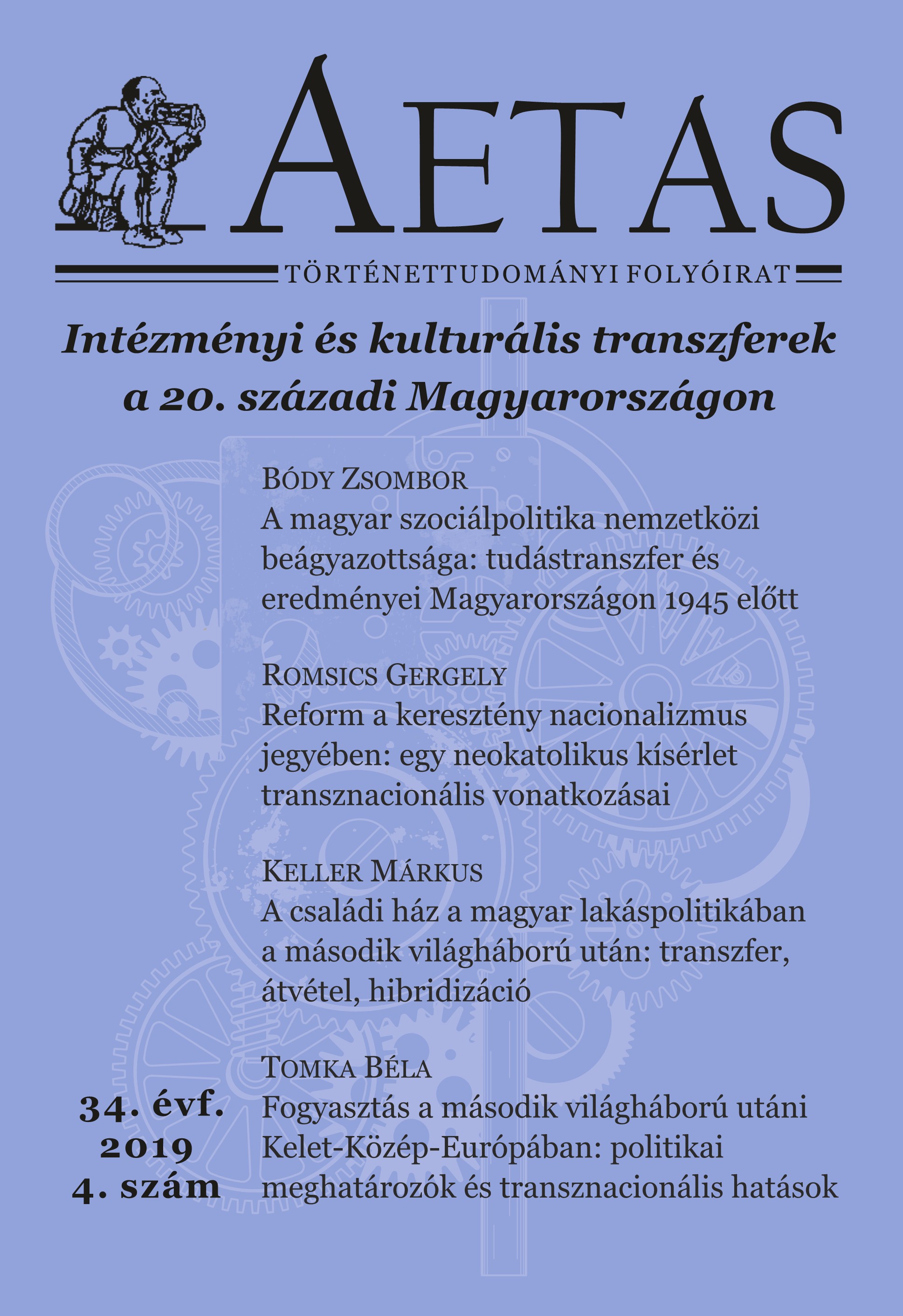Fogyasztás a második világháború utáni Kelet-Közép-Európában: politikai meghatározók és transznacionális hatások
Consumption in East Central Europe after WWII: Political Determinants and Transnational Connections
Author(s): Béla TomkaSubject(s): Post-War period (1950 - 1989)
Published by: AETAS Könyv- és Lapkiadó Egyesület
Summary/Abstract: The study explores the characteristics of the consumer culture of East-Central European communist societies – Poland, Czechoslovakia, and Hungary – during the decades following WWII. It argues that the significant role of politics in the formation of consumption patterns and consumer culture was a major feature of the region’s consumption history during this time period, but consumption policy shouldn’t be considered the sole determinant of changes. Besides consumption policy, economic and social factors should also be taken into account. The effects of consumption policy were not as significant as several previous studies suggest. The widening gap between consumer aspirations and the actual possibilities was the most important factor shaping consumption policy. In general, the level of consumption advanced in the region during the decades after 1950, but consumer satisfaction didn’t increase with it, and even started to decline towards the end of the period. The rapid rise in consumer aspirations had several reasons, but we consider the transnational factors, namely the demonstration effects of Western countries to be the most significant. Economic policy reacted to this with changes in direction, but these measures were strongly constrained by the political and economic system. This constellation can help us understand how East-Central European consumer culture was connected to political changes, and how it contributed to the destabilization of the communist regimes.
Journal: AETAS - Történettudományi folyóirat
- Issue Year: 2019
- Issue No: 4
- Page Range: 62-74
- Page Count: 13
- Language: Hungarian

